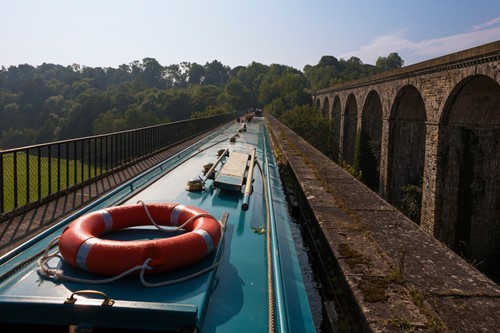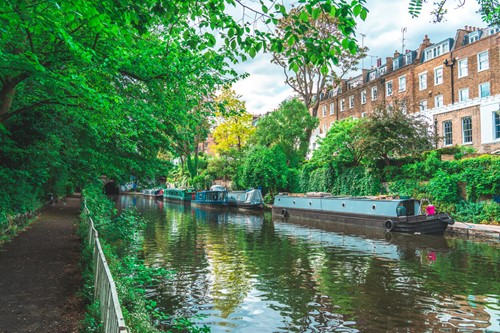Boat licensing is a rather complex subject, but at Insure4Boats, we’re here to help with all the fiddly bits of boat ownership, so you can spend more time out on the water, doing what you love.
Do you need a licence to drive a boat?

When buying a boat, you normally need to register it before you can use it on inland waterways, such as canals and rivers. This can be done via the navigation authority of the waterway you want to use.
Commercial, industrial, and public boats must also comply with standards set out in the Boat Safety Scheme. However, unlike driving a car, there’s no need to pass a test or exam before heading out on the water in a boat.
How do boat licences work?
There are several navigation authorities that manage the UK’s rivers and canals—each one with its own licences and associated fees.
You, the boat owner, must obtain the relevant licence from a particular body should you wish to house your boat or drive upon the waterways they manage.
Generally speaking, you’ll need to renew your boat licence every year. However, there are often shorter-term licensing options available to suit things like boating holidays, so it’s worth researching into the relevant waterway authority and its licensing terms.
For ease, let’s assume that you want to use your boat on an inland UK waterway.
Boats and equipment you will need a licence for
Of course, we’d be here all day listing every boat type and piece of equipment that requires a licence, but here are some of the most common boats we think are most likely to impact YOU.
- Narrowboats
- Canoes
- Kayaks
- Paddle boards
- Dinghies
- Powerboats
What type of licence do you need, and how do you get one?

Not all rivers and canals are managed by the same authority, so the type of licence you need, where you can obtain it, and the fees associated will differ according to geography.
To start, you need to contact each authority separately:
- The Canal & River Trust: manages 96 canals and navigable rivers across England and Wales
- The Environment Agency (EA): manages the River Thames, River Medway and East Anglia
- The Broads Authority: manages the Norfolk and Suffolk Broads
- Scottish Canals: looks after the waterways in Scotland
If you’re unsure which authority you need to contact in regards to your boat licence, you can visit the Inland Waterways Association website for more information.
The Canal & River Trust
The Canal & River Trust, in particular, offers two types of boat licences: business or private.
If your boat is used for business or commercial purposes, such as a floating shop, café, renting out to others to live or holiday, you need a business licence.
Whereas if your boat is merely for your own private use, a private licence will suffice. There are several different types of private licences:
- Long term – for if your boat is always on the water
- Short term – for smaller boats, perhaps visiting from other waterways
- Gold – this is a combination of Canal & River Trust and EA licences
Licence fees depend on your boat and the type of licence you select, so we can’t give you a straight figure here. It’s better for you to go away and research that part yourself.
Specialist boat insurance from Insure4Boats
Whatever type of boat you own and whether you need a licence to drive it or not, you must insure it regardless.
At Insure4Boats, our specialist boat insurance policies cover you and your boat against theft, loss and damage. You can also tailor your policy to match your exact requirements, including adding cover for your contents should you need it.
We also offer Third Party Liability to protect you should you cause damage to another boat out on the water or cause an injury to another person.
What’s more—all of our policies come rubber-stamped with our ‘Ripe Guarantee’, which means you get great cover and exceptional service at a price you can afford.
Find out more about how we can help and get a bespoke online quote today.
Related
Complete guide to narrowboat fuel consumption
10 things to look for when buying a used jet ski
7 items you need to have on your kayak
Please note the information provided on this page should not be taken as advice and has been written as a matter of opinion. For more on insurance cover and policy wording, see our homepage.


